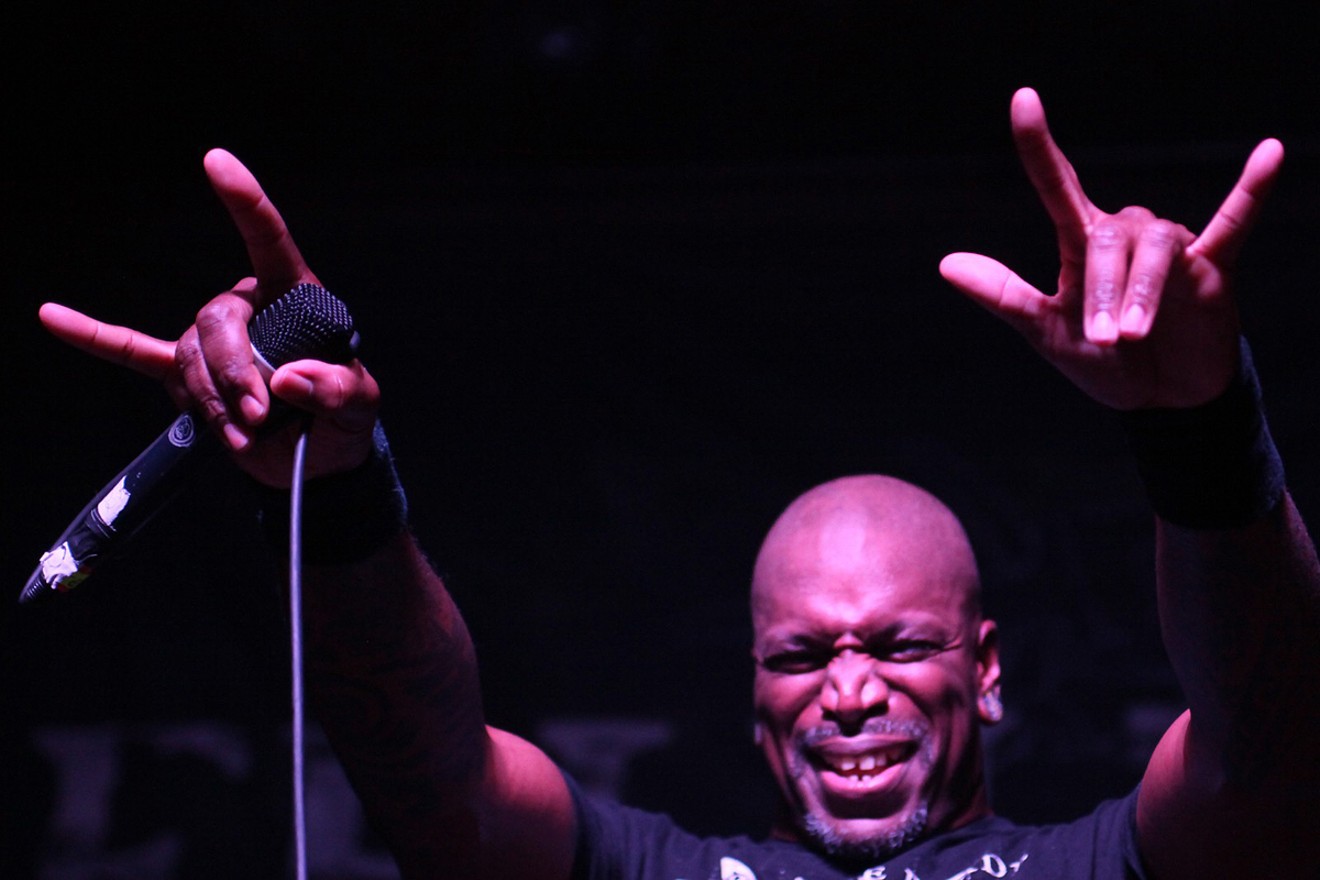Outside of country music, no musical genre is as white — or at least believed to be as white — as metal. Blame it on Beavis, Butthead, Bill, or Ted, but if asked to describe a typical metalhead, most Americans would draw a long-haired Caucasian bro making the Devil's sign with his hands and possibly snorting glue.
But all it takes is one visit to a Churchill's metal night to see the prominence of metal in Hispanic culture. And no band exemplifies the Latin love for roaring-loud and seizure-fast music like Sepultura.
Formed in Brazil in 1984 and based on a love of death metal and Iron Maiden, Sepultura took only a few years to make it big outside of South America. The band's 1989 release, Beneath the Remains, was hailed as an instant thrash-metal classic, opening the doors for massive stadium tours around Europe and North America. The band opened for Alice in Chains and Ozzy Osbourne despite the fact that its four original members barely spoke English.
After moving to the States in the '90s, Sepultura began to find mainstream chart success with two albums — 1993's Chaos A.D. and 1996's Roots — breaking into Billboard's Top 50. But success cracked a schism into the band. In 1997, original singer Max Cavalera left and, after a lengthy audition process, was replaced by African-American musician Derrick Green. He's now backed by new drummer Eloy Casagrande, longtime guitarist Andreas Kisser, and original bassist Paulo Jr. Though Sepultura isn't as megapopular as it was in its '90s heyday, it continues to play a throbbing, pulsating show of metal that will make its way to Culture Room this Thursday.
With a new album, Machine Messiah, due out this year, Green spoke with Antihero Magazine about how his bandmates' Brazilian roots served as lyrical inspiration for people of all cultures and ethnicities in the United States.
"We talk a lot about the political situation that is happening in Brazil with a lot of people going to jail, a lot of people standing up wanting to change, wanting to see a change," Green said. "There is a mixture of a lot of these different events that are happening during the process of writing. They had a big influence and impact on the album."
Sepultura
7 p.m. Thursday, April 13, at Culture Room, 3045 N. Federal Hwy., Fort Lauderdale; cultureroom.net; 954-564-1074. Tickets cost $30 via ticketmaster.com.












